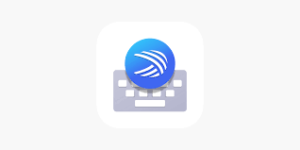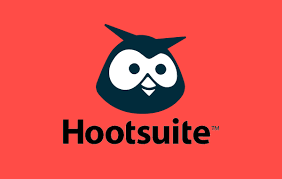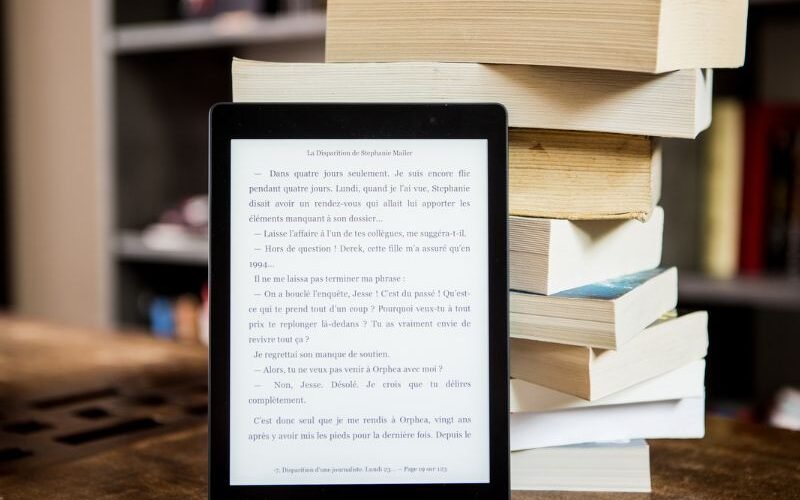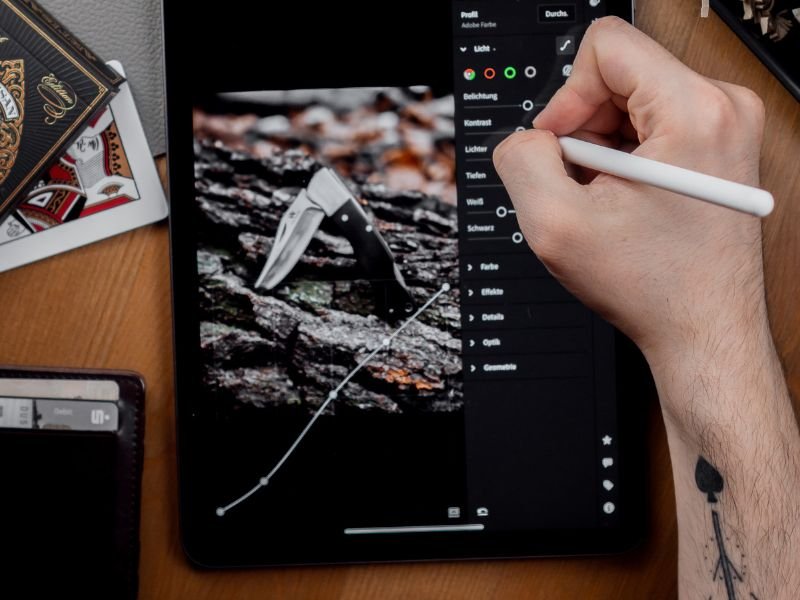If you’re the kind of person who gets more excited about neural networks than Netflix, then welcome — you’re among friends. In a world where artificial intelligence is no longer science fiction but a swipe away, the Android ecosystem has become a playground for powerful AI apps. From personal productivity to mind-blowing creativity and automation, there’s an AI app for just about everything — but which one stands above the rest?
In this article, we’re diving into the world of machine learning on mobile to uncover the best AI app for Android — the kind that doesn’t just impress your inner geek but actually upgrades your everyday life. Whether you want an AI that chats, thinks, creates, or predicts, we’ve tested the top contenders so you don’t have to.
The demand for AI applications has skyrocketed in recent years, as they offer capabilities that were once considered futuristic. From voice assistants that understand context to photo editors that automatically enhance images, AI is making smartphones more brilliant than ever. However, not all AI apps are created equal—some stand out due to their advanced features, user-friendly interfaces, and seamless integration with other services. Identifying the best AI app depends on your specific needs, whether it’s for work, creativity, or everyday convenience.
We will explore The Best AI apps for Android, highlighting their key features, benefits, and what makes them exceptional. We’ll cover a range of categories, including productivity, photography, health, and entertainment, ensuring there’s something for everyone. By the end of this guide, you’ll have a clear understanding of which AI app can best enhance your Android experience.
What Makes an AI App Stand Out?
When evaluating The Best AI App For Android, several factors determine their effectiveness and appeal. The best AI apps utilize cutting-edge machine learning algorithms to provide accurate and personalized results. They should be intuitive, with minimal learning curves, allowing users to harness AI’s power without technical expertise. Additionally, seamless performance, regular updates, and strong privacy policies are crucial for a trustworthy AI experience.
Another key aspect is versatility. The top AI apps often combine multiple functionalities, such as text generation, image recognition, and predictive analytics, into a single platform. Integration with other apps and services further enhances their utility, making them indispensable tools for both personal and professional use. User feedback and ratings also play a significant role in identifying the best AI apps as they reflect real-world performance and reliability.
Lastly, innovation sets the best AI apps apart. Developers who continuously introduce new features and improvements ensure their apps remain relevant in a fast-evolving tech landscape. Whether it’s through advanced voice recognition, real-time translation, or AI-driven automation, the best apps push the boundaries of what’s possible on a mobile device.
Top AI Apps for Android
One of theThe Best AI App For Android is Google Assistant, which excels in voice recognition and smart home integration. It can perform tasks like setting reminders, sending messages, and controlling IoT devices with simple voice commands. Another standout is ChatGPT, which offers advanced conversational abilities, helping users with writing, coding, and research. Its ability to understand context and generate human-like responses makes it a powerful tool.

For photography enthusiasts, Adobe Lightroom leverages AI to enhance photo editing with features like automatic adjustments and AI-powered presets. Similarly, Remini uses artificial intelligence to upscale and restore old or low-quality images, delivering stunning results. In the health and fitness category, MyFitnessPal employs AI to track nutrition and suggest personalized meal plans, while Woebot provides mental health support through AI-driven therapy conversations.

Productivity apps like Microsoft SwiftKey use AI to improve typing predictions and autocorrect, making texting faster and more accurate. Otter.ai is another excellent choice, offering real-time transcription for meetings and interviews with impressive accuracy. For entertainment, Replika stands out as an AI chatbot companion that learns from user interactions to provide meaningful conversations. Each of these apps demonstrates how AI can enhance different aspects of daily life.

The Future of AI Apps on Android
As AI technology continues to advance, Android apps will become even more sophisticated. We can expect a deeper integration of generative AI, allowing apps to create content, automate workflows, and provide hyper-personalized recommendations. Enhanced natural language processing will make virtual assistants more conversational, while improvements in computer vision will enable smarter photo and video editing tools.
Privacy and ethical considerations will also play a larger role in AI app development. Users are becoming more conscious of data security, prompting developers to implement stronger encryption and transparency measures. Additionally, AI apps will likely adopt more inclusive designs, catering to diverse languages, accents, and accessibility needs.
The competition among AI apps will drive innovation, leading to more niche solutions tailored to specific industries like education, healthcare, and finance. With the rise of on-device AI processing, apps will become faster and more efficient, reducing reliance on cloud servers. The future of AI on Android is bright, promising smarter, more intuitive, and highly adaptive applications.
AI Apps for Productivity and Organization
When it comes to boosting productivity, AI-powered apps can be game-changers. Notion AI is a standout, integrating smart features into the popular workspace tool. It can summarize notes, generate task lists, and even draft emails—saving users hours of manual work. Another powerful option is Todoist, which uses AI to prioritize tasks, suggest deadlines, and automate reminders based on user behavior. These apps learn from your habits to provide increasingly accurate assistance over time.
For professionals handling large amounts of data, Fireflies.ai is indispensable. It joins meetings (in-person or virtual) to record, transcribe, and analyze conversations, then generates summaries with key takeaways. Similarly, Grammarly goes beyond basic spell-checking, using AI to enhance writing style, tone, and clarity in real time across emails, documents, and social media. Its ability to adapt suggestions based on context makes it superior to traditional proofreading tools.
Small business owners and entrepreneurs can benefit from Hootsuite Insights, which employs AI to track brand mentions, analyze sentiment, and predict social media trends. Meanwhile, Clockwise optimizes calendars by automatically rescheduling meetings to create blocks of focused work time. These apps demonstrate how AI can take over routine organizational tasks, allowing users to concentrate on high-value activities.

AI-Powered Creativity and Content Creation
The creative possibilities unlocked by AI apps are truly remarkable. Canva’s Magic Studio suite offers tools like AI image generation, automatic background removal, and even video editing assistance—making professional-grade design accessible to everyone. Musicians will appreciate BandLab, which provides AI mastering for tracks and even suggests melodic ideas based on a user’s input. These tools are eliminating traditional barriers to creative expression.
For writers and content creators, Writesonic and Jasper have become essential. These platforms generate high-quality articles, product descriptions, and marketing copy in seconds, with customizable parameters for tone and style. Pictory takes text content and automatically transforms it into engaging video presentations—complete with relevant stock footage, transitions, and voiceovers. The AI even selects the most impactful quotes to highlight.

Photography apps have seen particularly impressive AI advancements. Lensa’s AI portraits and PicsArt’s smart editing tools allow users to create stunning visuals with minimal effort. Meanwhile, CapCut uses AI for automatic video editing, suggesting cuts, effects, and even soundtrack synchronization based on the content’s mood and pacing. These innovations are democratizing professional-quality content production.
AI for Health, Wellness, and Personal Growth
The health and wellness sector has embraced AI with groundbreaking results. K Health allows users to input symptoms and receive AI-powered preliminary diagnoses with accuracy rivaling human doctors. Fitbod creates customized workout plans that adapt based on performance, available equipment, and recovery needs—essentially providing a personal trainer in your pocket.

Mental health support has been transformed by apps like Youper, which uses cognitive behavioral therapy techniques in AI-guided conversations to help manage anxiety and depression. Sleep Cycle analyzes sleep patterns through sound and movement detection, then provides personalized recommendations for improvement. These apps make professional-grade health insights accessible to all.
Language learners have exceptional AI tools at their disposal. ELSA Speak provides real-time pronunciation correction with speech recognition technology, while Duolingo’s AI adapts lessons to individual learning styles and progress rates. Even traditional education is being reshaped by apps like Socratic, which can solve and explain complex math problems through photo recognition.
AI for Entertainment and Social Connection
Entertainment apps are leveraging AI to create deeply personalized experiences. Spotify’s AI algorithms analyze listening habits to curate uncannily accurate playlists and discover weekly recommendations. Replika has evolved beyond basic chatbot functionality, now offering AI companions capable of meaningful, context-aware conversations that help combat loneliness.

Gaming has entered a new era with AI-powered apps like AI Dungeon, which generates endless interactive storylines based on player input. Social media platforms increasingly use AI for features like automatic photo tagging (Facebook), real-time filters (Snapchat), and content recommendation (TikTok’s famously accurate “For You” page).
Even dating apps are getting smarter—Hinge’s “Most Compatible” feature uses machine learning to analyze user behavior and suggest better matches over time. These entertainment applications showcase AI’s ability to understand and adapt to human preferences at scale.
Emerging AI Technologies to Watch
The next wave of Android AI apps will likely focus on augmented reality integration. Imagine apps that overlay real-time translations onto street signs through your camera or interior design tools that use AR to visualize furniture in your home with AI-generated style recommendations. Multimodal AI—capable of processing text, images, and voice simultaneously—will enable even more natural interactions.
Edge AI (processing data on-device rather than in the cloud) promises faster performance and enhanced privacy. We’re already seeing this in apps like Google’s Recorder, which transcribes speech entirely offline. As language models become more efficient, expect to see complex AI features running locally on smartphones.
Perhaps most exciting is the potential for AI agents—apps that can autonomously perform multi-step tasks across different platforms. Imagine telling your AI assistant to “plan a weekend trip” and having it research destinations, book flights, create an itinerary, and notify your contacts—all without manual intervention.
Choosing the Right AI App for Your Needs
With this overwhelming array of options, selecting the best AI app requires careful consideration. First, identify your primary need—is it productivity, creativity, health, or entertainment? Read recent reviews to gauge real-world performance, as AI apps evolve rapidly. Pay attention to data privacy policies, especially for apps handling sensitive information.
Many premium AI apps offer free trials—take advantage of them to test how well the AI adapts to your specific use cases. Look for apps that provide regular updates, as stagnant AI models quickly become outdated. Consider battery impact—some intensive AI apps may drain your phone’s resources faster.
Most importantly, don’t just chase the most hyped AI app. The best choice is the one that seamlessly integrates into your existing workflows while solving actual problems. Sometimes, a simpler, more focused AI tool outperforms a jack-of-all-trades solution.
The Ethical Dimension of AI Apps
As we embrace these powerful tools, important ethical questions emerge. Many AI apps rely on user data for training—are you comfortable with how your information is used? Some AI-generated content blurs the line between human and machine creation—should there be disclosure requirements?
There’s also the risk of over-reliance. While AI fitness coaches are convenient, they shouldn’t replace medical professionals for serious health concerns. AI writing tools are helpful but can’t replicate human creativity and nuance. Users must maintain critical thinking and not blindly accept AI outputs.
Developers face the challenge of eliminating bias from their algorithms—ensuring AI apps serve diverse populations equally well. There’s also the environmental impact—training large AI models consumes significant energy. The most responsible apps are those that balance innovation with ethical considerations.
Conclusion
The landscape of AI apps for Android represents one of the most exciting frontiers in mobile technology. From transforming how we work and create to revolutionizing personal health and entertainment, these applications are redefining what smartphones can do. The best AI apps don’t just perform tasks—they learn, adapt, and anticipate needs in ways that feel almost magical.
As this technology continues to advance at a breathtaking pace, users stand to benefit from increasingly sophisticated and personalized experiences. However, this rapid evolution also demands that we stay informed and intentional about which AI tools we adopt. The most impactful apps will be those that enhance rather than replace human capabilities, complementing our strengths while compensating for our limitations.
Looking ahead, the boundary between AI applications and general smartphone functionality will likely blur—soon, AI won’t be a special feature but the fundamental way our devices operate. For now, exploring and experimenting with these remarkable tools allows us to glimpse the future while solving real problems today. The best AI app for Android ultimately depends on your unique needs, but one thing is certain: Artificial intelligence is making our mobile experiences smarter, more efficient, and more creative than ever before.






